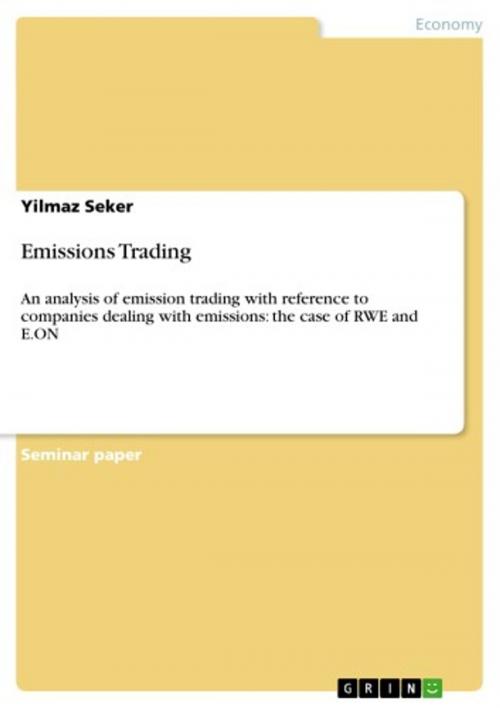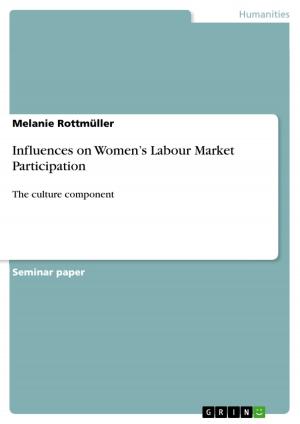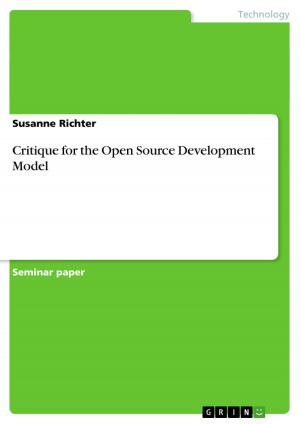Emissions Trading
An analysis of emission trading with reference to companies dealing with emissions: the case of RWE and E.ON
Business & Finance, Management & Leadership, Management| Author: | Yilmaz Seker | ISBN: | 9783640910281 |
| Publisher: | GRIN Publishing | Publication: | May 6, 2011 |
| Imprint: | GRIN Publishing | Language: | English |
| Author: | Yilmaz Seker |
| ISBN: | 9783640910281 |
| Publisher: | GRIN Publishing |
| Publication: | May 6, 2011 |
| Imprint: | GRIN Publishing |
| Language: | English |
Seminar paper from the year 2005 in the subject Business economics - Business Management, Corporate Governance, grade: 1,0, University of Hull, language: English, abstract: 1 Introduction During the last century the Earth's average surface temperature has risen by 0.6 degrees Celsius. It is expected to warm by 1.4 to 5.8 degrees Celsius by the end of this century. The current warming trend is expected to cause extinctions. Many plant and animal species, already damaged by pollution and loss of habitat, are not expected to survive till the next century. Human beings are likely to face mounting impacts such as raising sea level, decrease of drinking water springs and, deserts may expand into existing farmlands. The main reason for growing thermometer is the industrialisation with burning of ever-greater quantities of oil, gasoline, and coal, the destroying of forests and some farming methods which especially causes carbon dioxide, methane, and nitrous oxide. These activities cause an increasing amount of 'greenhouse gases' in the atmosphere. The effect is that the global temperature is increasing artificially. Global warming involving the entire world which most countries joined an international treaty, under the umbrella of the United Nations, to begin to consider what can be done to reduce global warming. Therefore, in 1997 governments agreed to an addition to the consisting treaty, namely the 'Kyoto Protocol' (UNFCCC, 2005). [...]
Seminar paper from the year 2005 in the subject Business economics - Business Management, Corporate Governance, grade: 1,0, University of Hull, language: English, abstract: 1 Introduction During the last century the Earth's average surface temperature has risen by 0.6 degrees Celsius. It is expected to warm by 1.4 to 5.8 degrees Celsius by the end of this century. The current warming trend is expected to cause extinctions. Many plant and animal species, already damaged by pollution and loss of habitat, are not expected to survive till the next century. Human beings are likely to face mounting impacts such as raising sea level, decrease of drinking water springs and, deserts may expand into existing farmlands. The main reason for growing thermometer is the industrialisation with burning of ever-greater quantities of oil, gasoline, and coal, the destroying of forests and some farming methods which especially causes carbon dioxide, methane, and nitrous oxide. These activities cause an increasing amount of 'greenhouse gases' in the atmosphere. The effect is that the global temperature is increasing artificially. Global warming involving the entire world which most countries joined an international treaty, under the umbrella of the United Nations, to begin to consider what can be done to reduce global warming. Therefore, in 1997 governments agreed to an addition to the consisting treaty, namely the 'Kyoto Protocol' (UNFCCC, 2005). [...]















